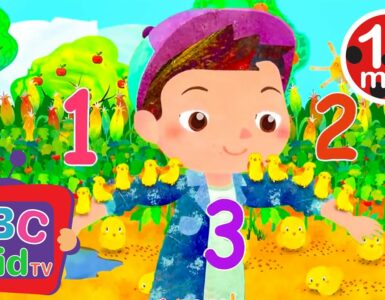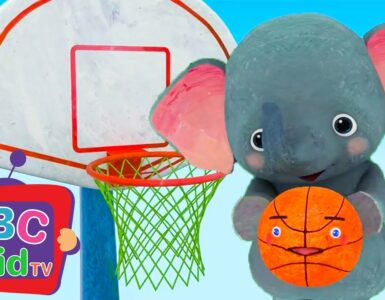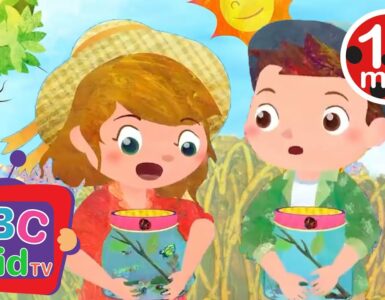“Miss Polly Had a Dolly” is a classic children’s nursery rhyme that has been enjoyed for generations. This simple yet charming rhyme tells the story of Miss Polly and her beloved dolly, and the many adventures they go on together
Miss Polly Had a Dolly
Miss Polly Had a Dolly’s is a popular nursery rhymes in the United Kingdom. Its origins are obscure but most likely dating back to the early 20th century or late 19th century.
The song was composed by artist: Zouzounia and released in the album: Nursery Rhyme, ABCkidTV released in 2005
Miss Polly had a Dolly’s who was sick sick sick
Thetubekids.com – The song is a very popular action song too played in classrooms. Kids will do actions based on the lyrics of the song. After the second line (who was sick sick sick) children will pretend to rock a doll close to their chest. When the third line (So she phoned the doctor) is sang, the children will put their hands close to their ears to pretend calling a doctor.
More: Daddy Finger song – Daddy Finger Family
Miss Polly Had a Dolly Lyrics
Miss Polly had a dolly’s who was sick, sick, sick.
So she phoned for the doctor to come quick, quick, quick.
The doctor came with his bag and his hat,
And knocked at the door with a rat-a-tat-tat.
He looked at the dolly and shook his head,
And said “Miss Polly put her straight to bed.
He wrote a paper for a pill, pill, pill.
I’ll be back in the morning with the bill, bill, bill.
Miss Polly had a dolly’s who was sick, sick, sick.
So she phoned for the doctor to come quick, quick, quick.
The doctor came with his bag and his hat,
And knocked at the door with a rat-a-tat-tat.
He looked at the dolly and shook his head,
And said “Miss Polly put her straight to bed.
He wrote a paper for a pill, pill, pill.
I’ll be back in the morning with the bill, bill, bill.
Miss polly had a dolly youtube
Miss Polly Had A Dolly’s British sign Language
Exploring “Miss Polly Had a Dolly”
The Cultural Charm of Nursery Rhymes
“Miss Polly Had a Dolly” is more than just a playful nursery rhyme; it encapsulates the essence of childhood nostalgia, tapping into the universal bond children share with their toys. Dating back to its publication in 1865, this whimsical song has traveled across generations and cultures, evolving while remaining an endearing staple of English-speaking childhoods . The simplicity of the lyrics and the melodic tune make it accessible for young minds, inviting engagement through singing and action – elements that are crucial in early childhood development. This rhyme’s American origins highlight how folk songs can bridge cultural gaps, as they morph to reflect the contexts within which they are sung.
Psychological Implications of Playtime Themes
The themes present in “Miss Polly Had a Dolly” touch upon significant psychological foundations in child development. The context of a doll—a representation of nurturing and care—introduces children to concepts such as empathy and responsibility. When children engage with dolls, they often enact scenarios where they tend to their “baby,” promoting emotional intelligence. As “Miss Polly” reveals her concern for her dolly’s wellbeing, she also presents a narrative that emphasizes the importance of caregiving, which could translate into real-world implications about how children view relationships and responsibility in later life stages .
Social Context and Evolution of Folklore
Interestingly, the evolution of “Miss Polly Had a Dolly” reflects broader shifts in societal attitudes towards childhood and play. In contemporary settings, children’s interactions with toys have expanded beyond mere entertainment, often embodying educational components that prepare them for future social environments. While Miss Polly’s charming story may remain rooted in traditional narratives, modern interpretations can see an infusion of diverse characters and situations reflecting today’s multifaceted family dynamics . Consider a scenario where Miss Polly instead rolls down the aisles of a vibrant playground, introducing multicultural friends who join her in an adventurous quest to bring her dolly to the doctor. Here, we can visualize not only an enchanting tale but also the stimulation of children’s imaginations toward inclusivity in friendships.
Engaging Educational Use in Modern Classrooms
Educators today recognize the importance of incorporating nursery rhymes like “Miss Polly Had a Dolly” in their pedagogical practices. Beyond vocal expression, these songs serve as tools for enhancing phonemic awareness, linguistic rhythm, and memory recall. When integrated into interactive learning sessions, teachers can reinforce language arts by encouraging children to create their own variations or extend the storyline of Miss Polly’s adventures, sparking creativity and critical thinking skills . This training in musicality and literacy lays foundational blocks for lifelong learning.
In essence, beyond its gentle melody, “Miss Polly Had a Dolly” serves as a launching pad for discussions about empathy, culture, and education, making it not only a beloved rhyme but also a treasure trove of social learning.













